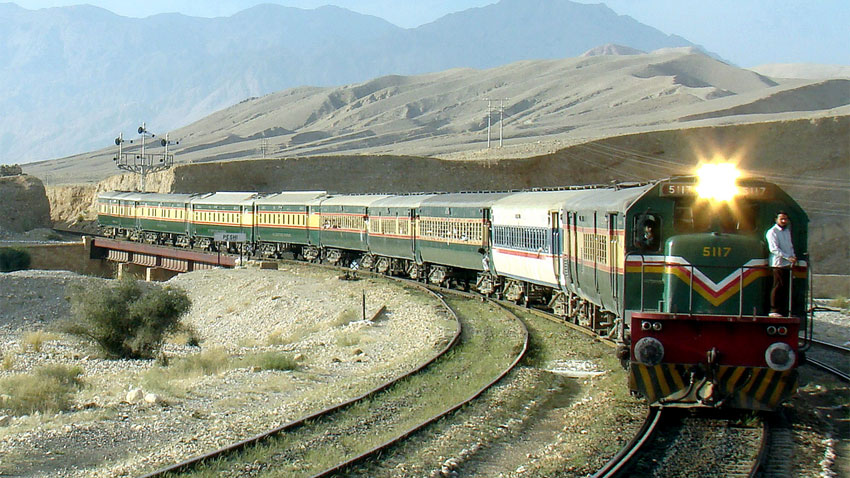KARACHI, 28 Oct. On Thursday, Pakistan and China decided to launch the Karachi Circular Railway (KCR) project and the Mainline-1 (ML-1) railway from Karachi to Peshawar. Instead of using a PPP model, the KCR project for Pakistan Railway will begin under the China-Pakistan Economic Corridor (CPEC).
Speaking to the media on Thursday, Federal Minister for Planning, Development, and Special Initiatives Ahsan Iqbal stated that during the Joint Cooperation Committee (JCC) on CPEC’s 11th meeting, which was held virtually, the two sides had reached an agreement on important issues, such as the signing of agreements on ML-1 and KCR through institutional formalities.
The Karachi Circular Railway Project (KCR), valued at Rs. 292.389 billion, has already received approval from the Central Development Working Party (CDWP).
The project is for building a 44-kilometer-long, dedicated track that would run from Drigh Road via several locations, including Gulshan-e-Iqbal, Federal B Area, Liaquatabad, North Nazimabad, Nazimabad, Sindh Industrial Trading Estate (SITE), and Lyari.
Construction of horizontal and vertical curves, elements of railroad and roadway cross sections, ramp grades, and the layout of structures about the alignment are all included in the scope of work.
The scope of work also comprises KCR route alignment, station building, driver provision, informatory, regulatory, and warning signs, passenger facilitation signs, along with related amenities.
The project is a component of a larger plan to upgrade Karachi’s transportation infrastructure, including the city’s road system, facilities for mass transit and public transportation, and traffic control.
As a contemporary urban railway, KCR would complement Karachi’s current public transportation options, which have not been able to keep up with the city’s growing urban area and population over the last few decades due to a lack of modern mass transit systems and a dwindling supply of big buses.
The project’s primary goal is to offer dependable, secure, and ecologically friendly public transportation to Karachi, Pakistan’s largest metropolis. The project involves building a dual-track urban rail mass transportation system, and development is scheduled to take four years.
The facility is anticipated to serve 457,000 people per day, with the capacity eventually rising to 1 million. The project will make use of electric trains and run for 17 hours a day, seven days a week. The concept calls for the construction of thirty stations along the corridor that runs through the city’s densest population centers.
As a contemporary urban railway, KCR would complement Karachi’s current public transportation options, which have not been able to keep up with the city’s growing urban area and population over the last few decades due to a lack of modern mass transit systems and a dwindling supply of big buses.
The project’s primary goal is to offer dependable, secure, and ecologically friendly public transportation to Karachi, Pakistan’s largest metropolis. The project involves building a dual-track urban rail mass transportation system, and development is scheduled to take four years.
The facility is anticipated to serve 457,000 people per day, with the capacity eventually rising to 1 million. The project will make use of electric trains and run for 17 hours a day, seven days a week. The concept calls for the construction of thirty stations along the corridor that runs through the city’s densest population centers.

